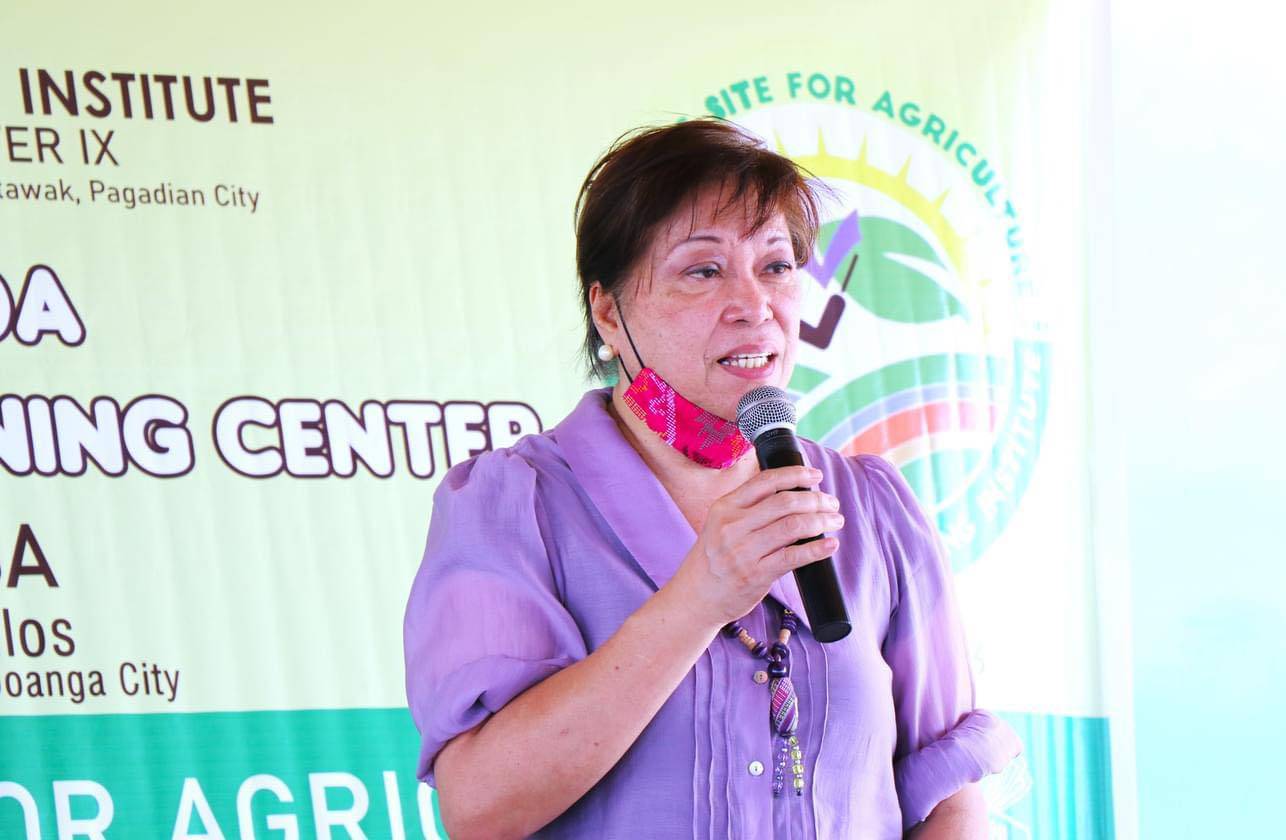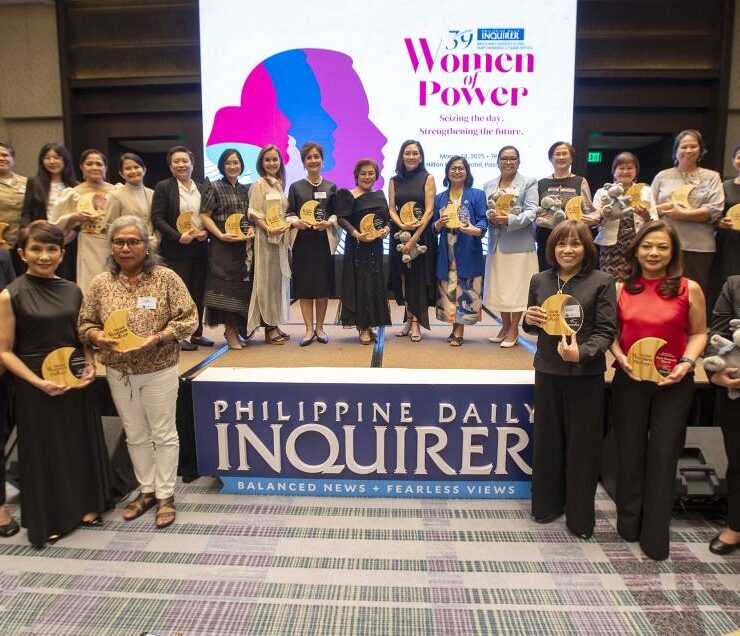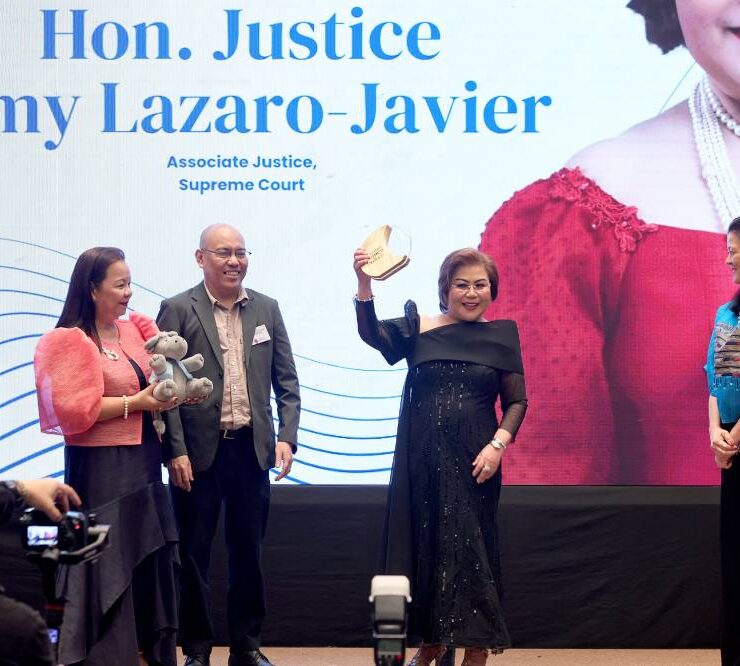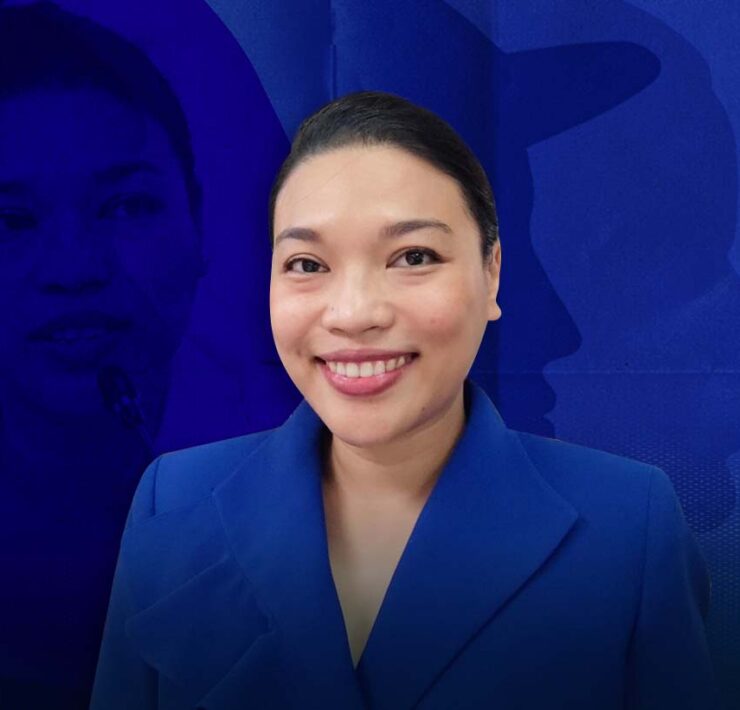Educator is consistent voice for Mindanao’s marginalized groups

ZAMBOANGA CITY—“We women hold half the sky, hence doors will have to be kept open for us because there are many tasks for us to do. We speak of women, we speak of honorary women, we speak of men who come with us to our activities. Overall, as a sector, we have something to offer.”
This was how Grace Rebollos, president of the Zamboanga-Basilan Integrated Development Alliance Inc. (Zabida), explained the significant role women play in society, during a meeting among community-based leaders on Aug. 25, 2021.
She noted that the COVID-19 pandemic had added layers of burden on women, especially that of taking care of their families’ mental health.
At that time, community-based leaders were busy helping their members navigate the economic crisis due to the pandemic, while trying to reflect on the sociopolitical landscape as the country was preparing for the 2022 presidential election.
‘Plainspeak’
Rebollos, a longtime teacher, has the ability to break down technical-sounding concepts into understandable pieces of information that can help move ordinary people to action.
As she speaks, she connects easily with her audience, just like the typical nongovernment organization (NGO) community worker that she is. It is a plus that she is fluent in many languages and dialects spoken in Mindanao.By helping people understand the complex situations affecting their lives, Rebollos is also able to inspire people with her courage and conviction.
Now 71, Rebollos had gone from being a street activist to president of the state-run Western Mindanao State University (WMSU), the largest institution of higher learning in Western Mindanao region based in Zamboanga City and where she graduated summa cum laude with a degree in education in 1972. She later obtained a doctorate in education from the University of the Philippines.
Throughout her professional journey, she has never wavered in being a voice for marginalized sectors like the urban poor, indigenous peoples, community women and the youth. She has used her positions of influence to bring their voices into the policymaking arena. Despite her responsibilities in the academe, Rebollos always finds time to involve herself in civil society initiatives.
Peace advocate
In the early 1990s, at the onset of stirrings of Islamic extremism that threatened to break the relations of various faith communities in multicultural, multi-ethnic and multireligious Zamboanga City, Rebollos was among those who took up the challenge of evolving a “conflict counter-culture,” a peaceful way of stemming the growth of terrorist propaganda and recruitment.
She joined a group with former Ateneo de Zamboanga University president Fr. Bill Kreutz, then Zamboanga Archbishop Francisco Cruces and Claretian missionary priest Angel Calvo that would later become the Peace Advocates Zamboanga (PAZ) in 1994.
Rebollos played a key role in PAZ’s effort to pioneer and promote the “culture of peace” paradigm, inspiring Muslim peace builders to organize the counterpart Salaam Foundation and helping give birth to the Interreligious Solidarity for Peace (ISP).
To inject more vigor into the advocacy for interfaith solidarity, peace and nonviolence, Rebollos helped conceptualize the Zamboanga Week of Peace. Upon the initiative of PAZ, Zamboanga City began to observe it in 1997, with the ISP as its main sponsor. The annual observance is supported by a local ordinance declaring the last Thursday of November until the first Wednesday of December as the Zamboanga Week of Peace.
Seeing the peace-building value of the initiative, then President Joseph Estrada made it the Mindanao Week of Peace through Proclamation No. 207 in 1999. The annual observance has endured to this day, giving advocates the occasion to look back on the lessons of previous efforts as well as reflect on emerging challenges to building peace and transforming conflicts in communities in Mindanao.In 2007, PAZ leaders joined hands with three other NGOs in Zamboanga City and Basilan province to form Zabida, which helps barangays develop their capacity to govern and to manage disaster response and preparedness, environmental protection, peace building and conflict resolution. Zabida, which Rebollos leads, also implements projects for grassroots communities, raises awareness about gender and human rights issues, and campaigns against violence and abuses on women and children. In 2010, then President Gloria Macapagal-Arroyo appointed Rebollos as one of the five members of the all-Mindanawon government peace panel in negotiations with the Moro Islamic Liberation Front (MILF). Although there was not enough time to clinch a peace deal with the MILF, the panel successfully set the tone for the restart of the process under the succeeding administration of President Benigno Aquino III.
Woman for all seasons
Former Human Rights commissioner Jose Manuel Mamauag describes Rebollos as “a woman for all seasons” whose endeavors have “touched the lives of Mindanaoans, notably those in the Zamboanga peninsula.”Prof. Noor Saada, a fellow academic, notes that alongside Rebollos’ “high academic achievement and wide experiences in education and development work,” she also has “deeply rooted connections with cultures, religions and communities, and a dedication unhindered by retirement from government service.”
“She utilized her presence to ensure that there were spaces for everyone at the table of consultation and dialogue. She employed her voice to advocate for the voiceless sectors and used her energy to influence policies and programs for the common good,” Saada notes.
For Zamboanga City Vice Mayor Josephine Pareja, Rebollos “embodies exemplary leadership and dedication” and “a beacon of inspiration for others to follow,” adding that “her remarkable achievements in promoting peace, sustainable development and community empowerment stand as a testament to her visionary leadership.”
Eduardo Sanson, former College of Law dean of WMSU, said Rebollos’ “life of high academic achievements; her passion for the cause of peace, especially in Mindanao; her compassion for the poor and her passion—together with kindred spirits—to provide them better lives; her dedication to the education of the youth; her insistence on excellence and her honesty, integrity, competence and patriotism in public service; her selflessness in doing charitable works (through) NGOs; and her loyalty as a friend” make her “a woman, a person, par excellence.” INQ





















